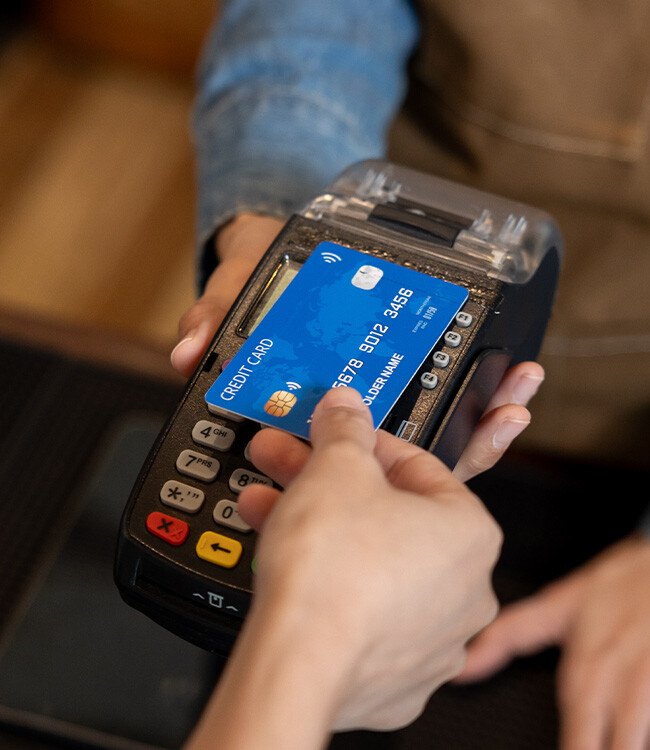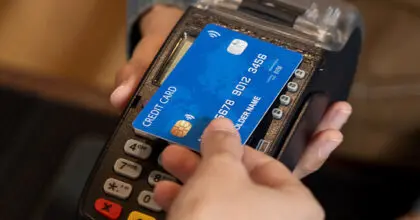Day 2 of Money20/20 began with presentations on current and future trends in payments, commerce, security, and banking. Michael Abbott, Digital Lead for Accenture Financial Services, North America, began the day discussing trends the firm believes will drive the future of payments. Among the trends covered were Millennials’ propensity to share, noting that Millennials are 10X more likely to share payment and purchasing decisions than older generations; and the increasing use of mobile for banking, noting that stand alone banking APIs could pose a threat to the mobile banking experience. The discussion also covered what’s next, including untapped opportunities to expand the promotional financing options in payments, estimated to be a $100B opportunity and one that issuers such as American Express have recently invested in with products like Plan It, and the need for digitization to tried and true products like coupons, which are still 99% paper.
Cornerstone Advisors hosted a packed session on the future of the checking account. The firm painted a concerning picture for bankers, suggesting that rising depository replacement—the storing of funds on prepaid cards, in apps, and with merchants instead of in a bank held depository account—is threatening the importance of checking accounts. Venmo, the standalone P2P service, currently holds $2.2B across user accounts, money that is waiting to be downloaded into banking accounts. Venmo’s recent announcement of a new debit card means a portion of this money may never make it back into the user’s traditional account. Merchants such as Starbucks, which currently holds more than $2B on its prepaid virtual and physical cards, and Amazon, which through its Prime Reload program actually incentivizes customers to store money to spend online in their Amazon wallet, point to the disruptive power of merchants who can position deposits seamlessly next to purchase. Direct deposit, which Cornerstone suggested is the lifeline for the checking account, may be also susceptible to future disruption. The talk concluded with a walk through a hypothetical scenario where Amazon purchases a retail bank or direct deposit company, providing the services through their platform, and removing the friction, and fees, associated with moving money from a traditional account to use with the retailer. The hypothetical scenario was worrying enough to result in “How do we keep Amazon from taking over the world?” being the top voted question by the audience.
Personal Financial Management is a big theme at this year’s conference, and was featured prominently in on the second day. In the evening keynote, PayPal CEO & President Dan Schulman encouraged attendees to make the incorporation of the 2B people worldwide without banking relationships the moonshot of the financial industry. He estimated that in the US the underbanked pay in excess of $141B in fees due to improper financial relationships. Schulman said partnership and collaboration is necessary to address this. A few banks introduced new personal financial management tools including Nomi by RBC and Finn by Chase.
In his evening keynote, Oliver Jenkyn, EVP & Group Executive of Visa North America, provided some perspective on the need to “keep the lights on” in payments by addressing the issues and challenges that face issuers and banks now. Visa is addressing this by scaling their network, moving from an approach of “Built by Visa” to one of “Enabled by Visa.” This collaborative approach is how the firm plans to handle the impressive growth in online retail, for example. Jenkyn noted that the firm expects a year-over-year shift of $14B in shopping from brick and mortar to online for the 2017 holiday season. This impressive stat compared to the current share of transactions completed via mobile pay or connected pay, which is only 0.05%, points to a need to focus on shoring up the way consumers pay today. Jenkyn closed with some areas to further reduce payments friction, notably, in the business-to-person space. Allowing an insurer to push funds directly into a customer’s account immediately after an accident, or for an Uber driver to be paid immediately after a completed trip, are opportunities to further make payments seamless.
Some notable news and launches from Day 2 include:
- Chase announced its Finn by Chase personal banking product. The app uses machine learning and user input to find out ways to better manage personal finances.
- RBC’s Nomi aims to make budgeting and saving more intuitive.
- Samsung debuted Bixby, a more intuitive and AI personal assistant. Bixby also has a dongle, which turns essentially any device with a speaker into a connected smart device. This is a threat to Amazon Alexa and Google Home, and removes one of the hurdles of IoT integration—the need for smart appliances.
- European fintech firm N26 is coming to the US. Its first US products will be a checking and debit card, debuting mid-2018.
- Amazon will enable ordering from restaurants on its app next month.
- MasterCard debuted AR shopping via a demonstration with Saks Fifth Avenue and Qualcom.
- Subprime servicer FS Card announced a new debt facility that allows it to bring more credit products to underserved markets.
Read about Money20/20 Day 1 here, Day 3 here, an Day 4 here.
Claude Lawrence is a Senior Research Analyst with Comperemedia. His areas of focus include Credit Cards, Personal Lending and Banking.
































